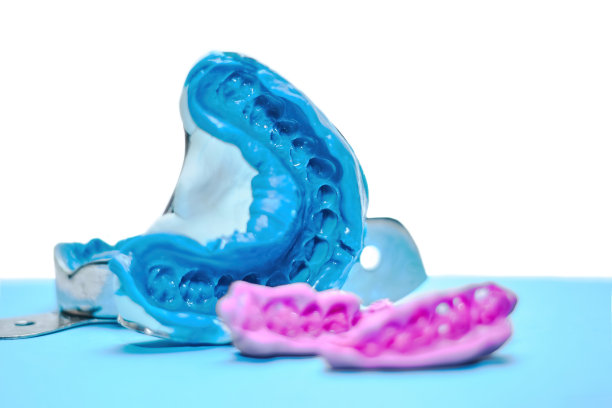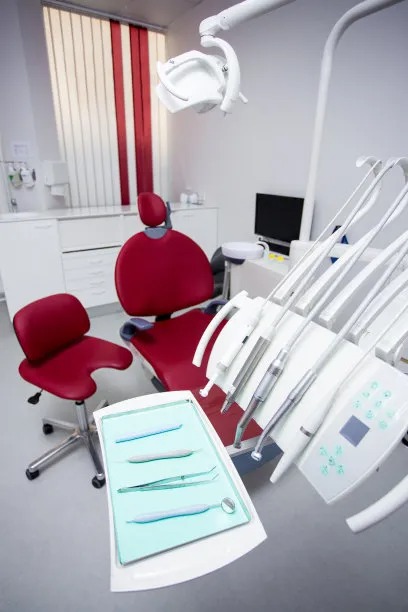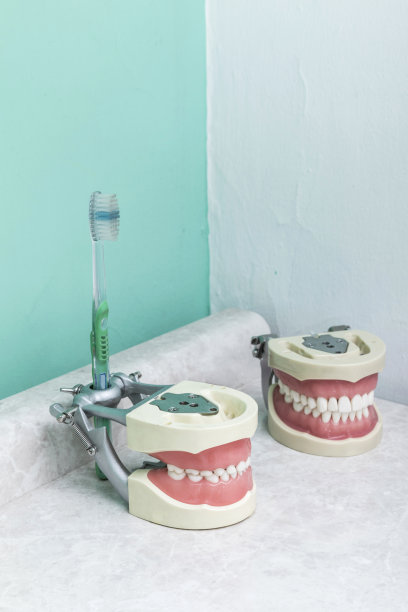Summary: Maintaining oral health is vital, and when a tooth must be extracted, professional dental care becomes essential. This article explores the significance of professional dental intervention to ensure a safe and effective tooth extraction process. We will discuss the health risks associated with DIY extractions, the importance of proper diagnosis and treatment planning, the role of anesthesia in patient comfort, and the necessity of aftercare and follow-up visits. Each aspect underscores the value of relying on experienced dental professionals rather than attempting tooth extractions at home. By understanding these elements, patients can appreciate why professional dental care is crucial for maintaining better oral health.
1. Risks of DIY Tooth Extractions

Attempting to extract a tooth at home poses significant health risks. Without proper tools and sterile conditions, individuals can severely injure themselves. Infections can arise from unclean conditions, leading to further complications such as abscesses or systemic illnesses. These are not just uncomfortable but can also threaten overall health.
Moreover, without a precise understanding of dental anatomy, individuals may inadvertently damage adjacent teeth, nerves, or blood vessels during an extraction attempt. Such actions can lead to chronic pain or the need for more extensive dental work later, which could have been avoided through professional care.
DIY extractions can also result in incomplete removal of the tooth, where fragments remain embedded in the gums. This can create persistent pain, swelling, and infection, necessitating emergency dental treatment that could have been bypassed with immediate professional help.
2. Importance of Diagnosis and Treatment Planning
Before any tooth extraction, a thorough diagnosis is essential to determine the underlying issues causing dental distress. Professional dentists use advanced imaging techniques, such as X-rays, to visualize the tooths structure, including its roots and surrounding tissues. This information is crucial in planning the extraction process.
In addition to diagnosing the health of the affected tooth, dental professionals evaluate the patient’s overall oral health. They may discover additional conditions, such as gum disease or cavities in adjacent teeth, which could complicate the extraction or necessitate further treatment. This comprehensive approach ensures that all possible health factors are considered before proceeding.
Proper treatment planning not only enhances the safety and success of the tooth extraction but also allows the dentist to develop a postoperative care strategy to ensure quicker recovery and minimal discomfort for the patient. This thorough process highlights how professional care minimizes risks and maximizes oral health outcomes.
3. The Role of Anesthesia in Comfort
One of the significant advantages of seeking professional dental care for tooth extraction is the use of anesthesia. Dentists are trained to administer local or general anesthetics tailored to the patient’s needs, which significantly reduces pain and anxiety during the procedure. This level of comfort cannot be achieved through self-extraction efforts.
Adequate anesthesia not only makes the extraction process bearable but also allows dentists to operate with precision. Patients can remain calm while the dentist focuses on a smooth procedure without the worry of disturbing pain. Additionally, professionals monitor the patient’s vitals, ensuring safety throughout the extraction.
Post-procedure, dentists provide instructions regarding pain management, including prescribed medication that alleviates discomfort as the anesthesia wears off. This careful attention to patient comfort underscores the superiority of professional dental care over do-it-yourself methods.
4. Aftercare and Follow-Up Necessities
After a professional tooth extraction, a structured aftercare plan is vital for healing and reducing the risk of complications. Dental professionals educate patients on proper post-extraction care, including dietary restrictions, oral hygiene tips, and signs of potential complications, such as excessive bleeding or infections.
Follow-up appointments are equally essential as they allow the dentist to monitor healing progress and intervene if necessary. Complications like dry socket can occur, and having a professional available to address such issues promptly can make a significant difference in recovery.
Moreover, regular follow-ups can also provide an opportunity to discuss further dental care options such as implants or bridges. This comprehensive care extends beyond the extraction itself and emphasizes the importance of professional dental services in maintaining ongoing oral health.
Summary:
In conclusion, professional dental care is not just a convenience; it is essential for safe and effective tooth extraction. The risks associated with DIY methods, the importance of accurate diagnosis and careful treatment planning, the benefits of anesthesia for comfort, and the necessity of aftercare all illustrate why seeking a dentist’s expertise is critical. Prioritizing professional dental care leads to better oral health outcomes and peace of mind for patients.
This article is compiled by Vickong Dental and the content is for reference only.
Vickong Dental
Vickong Dental is a large medical group established in Hong Kong in 2008 by professors from well-known medical universities in Guangdong and Hong Kong, as well as medical doctors from key national '985' universities (including Master's supervisors and senior professors). The chain of branches brings together expert dentists with PhDs and Master's degrees from Hong Kong and Mainland China, committed to providing high-quality dental treatment.
"Vickong Dental Practices the University Motto of 'Healing and Serving Society,' with a Stable Operation for Sixteen Years. It Has Been honored with Hong Kong Enterprise Leaders's Choice,' and is a Global Trusted Implant Center for the Nobel Implant System. Recommended by Hong Kong Metro Broadcast and Guangdong Television, it Serves Customers from Over Thirty Countries and Regions, Gaining the Trust and Favor of Citizens from the Guangdong-Hong Kong-Macau Greater Bay Area and Surrounding Cities.

Thousands of customers' unanimous praise
The most recognized and highly recommended dental service by customers in the Guangdong-Hong Kong-Macau Greater Bay Area
We Ensure You Receive Detailed Care and Attention Here
Hong Kong standards, Shenzhen prices, Your Trusted English-speaking dentists

Vickong Dental Medical-Grade Instrument Disinfection Process
Vickong Dental Medical-Grade Instrument Disinfection Process

Vickong Dental Chain: A Warm and Comfortable Environment for Treatment






Appointment Hours

Q&A
Why choose Vickong Dental?
Vickong Dental practices the university motto 「Medicine to Benefit Society」, with each branch bringing together highly qualified dentists with doctoral and master’s degrees from Hong Kong and the Mainland, and has maintained seventeen years of steady operation。Recipient of 「2024 Hong Kong Enterprise Leaders Brand」, 「2025 Hong Kong Enterprise Leaders Brand」, a Nobel Biocare Global Trusted Implant Center, and a brand recommended by Metro Radio Hong Kong and Guangdong TV。
To date, we have served customers from more than thirty countries and regions,earning exceptionally high word-of-mouth recognition and trusted recommendations from residents across the Guangdong-Hong Kong-Macao Greater Bay Area and surrounding cities
We have eight major branches in Zhuhai、Shenzhen,and a consultation and service assurance center in Hong Kong,so you can book a free consultation at any time for any questions,which is very reassuring.
If I do not accept the quotation after the CT scan, will I be charged??
No! As long as the actual treatment has not started, you will not be charged any fees.
Will there be any additional charges during the treatment process?
No, there won’t be any additional charges. Before treatment begins, we will clearly explain the treatment plan and its corresponding fees. Only after the patient agrees and signs the consent form will we proceed with the dental service.
Can I pay in Hong Kong dollars?
Yes. Vickong Dental accepts payment in Hong Kong dollars. The amount will be converted based on the exchange rate of the day, and the applicable rate will be clearly communicated to you in advance.
Can I reschedule my appointment at any time?
Yes. Please contact us via **WeChat** or **WhatsApp** as early as possible, providing your original appointment time and details, along with your preferred new date and time slot for rescheduling.













